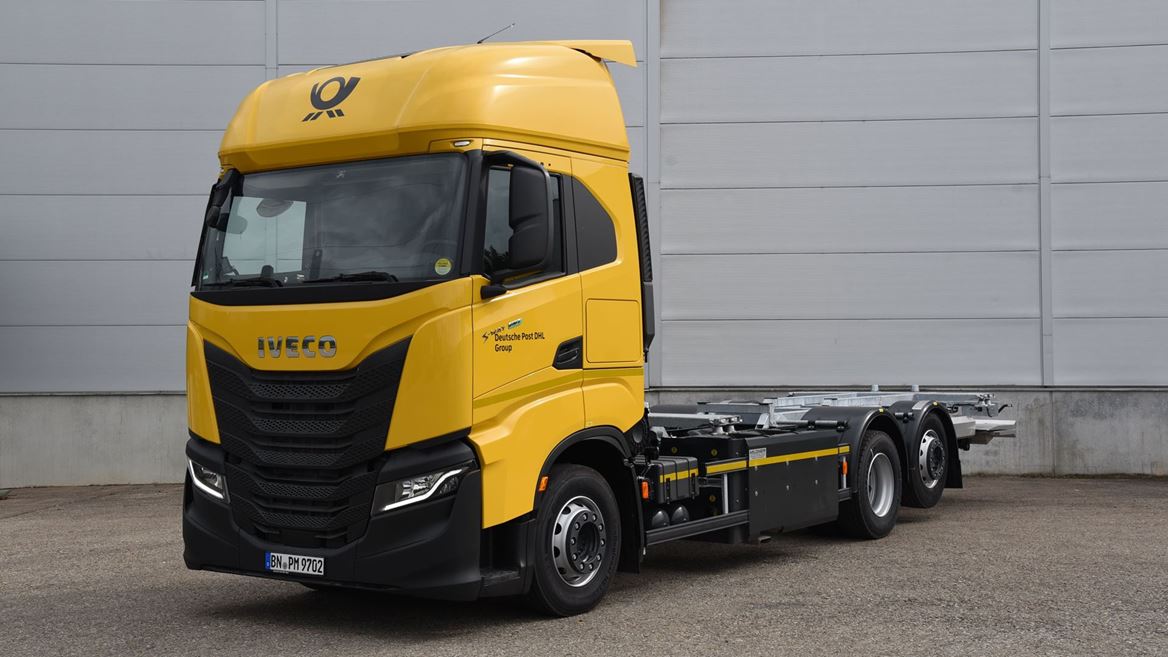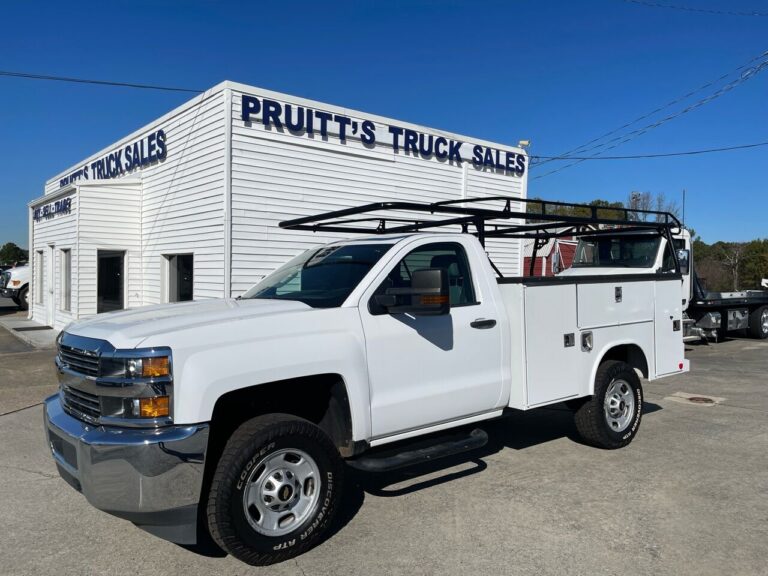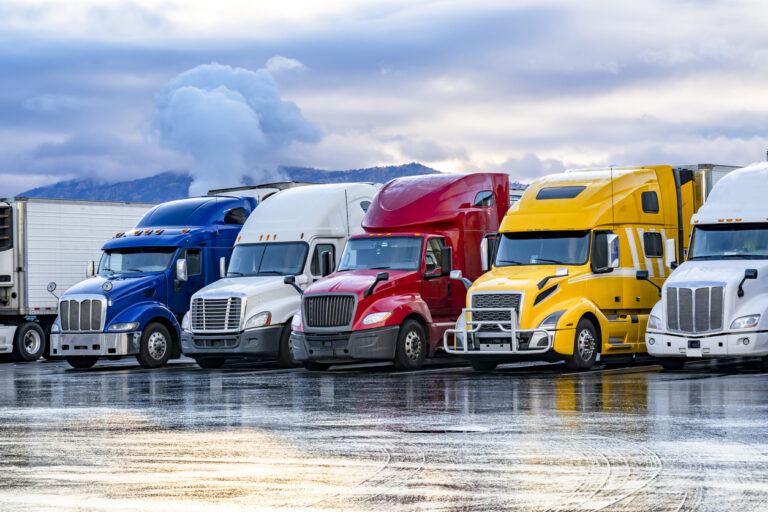Compressed Natural Gas Trucks: A Sustainable Path Forward for Commercial Fleets
Compressed Natural Gas Trucks: A Sustainable Path Forward for Commercial Fleets cars.truckstrend.com
In an era increasingly focused on environmental sustainability and operational efficiency, Compressed Natural Gas (CNG) trucks have emerged as a compelling alternative to traditional diesel-powered vehicles. Offering significant environmental benefits, economic advantages, and reliable performance, CNG trucks are redefining the landscape of commercial transportation, from urban delivery fleets to long-haul logistics. This comprehensive guide delves into the world of CNG trucks, exploring their technology, benefits, operational considerations, and future potential.
What are Compressed Natural Gas Trucks? Understanding the Technology
Compressed Natural Gas Trucks: A Sustainable Path Forward for Commercial Fleets
Compressed Natural Gas trucks are vehicles powered by natural gas, stored in high-pressure tanks at approximately 3,600 pounds per square inch (psi). Unlike Liquefied Natural Gas (LNG), which is cryogenically cooled, CNG remains in a gaseous state. These trucks typically utilize spark-ignited internal combustion engines, similar to gasoline engines, but specifically designed or modified to run on natural gas.
Key components of a CNG truck include:
- High-Pressure Fuel Tanks: Made of robust materials like steel, aluminum, or carbon fiber composites, designed to safely store CNG. These tanks are built to rigorous safety standards.
- Fuel Lines: High-pressure lines transport the gas from the tanks to the engine.
- Pressure Regulators: Reduce the gas pressure to a usable level for the engine.
- Fuel Injectors: Deliver the precise amount of natural gas into the engine cylinders.
- Engine Control Unit (ECU): Manages fuel delivery, ignition timing, and other engine parameters for optimal performance.
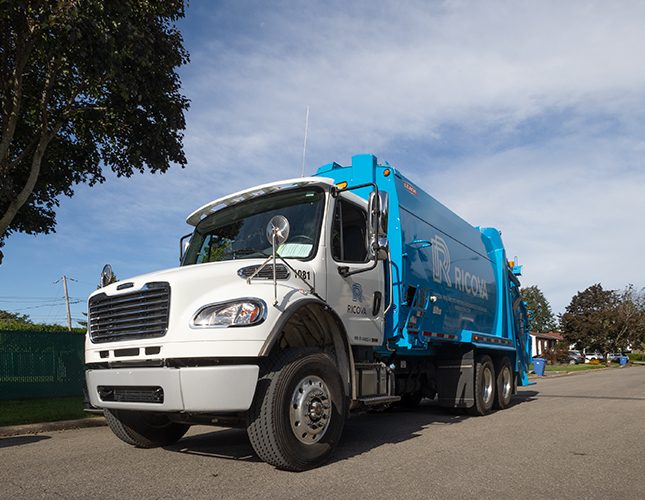
CNG trucks are available as Original Equipment Manufacturer (OEM) vehicles, built specifically for natural gas by major truck manufacturers, or as conversions where existing diesel or gasoline vehicles are retrofitted with natural gas systems. They come in various classes, from light-duty pickup trucks and vans to medium-duty delivery vehicles and heavy-duty tractor-trailers.
Key Benefits: Environmental & Economic Impact
The adoption of CNG trucks is driven by a powerful combination of environmental stewardship and financial prudence.
Environmental Advantages:
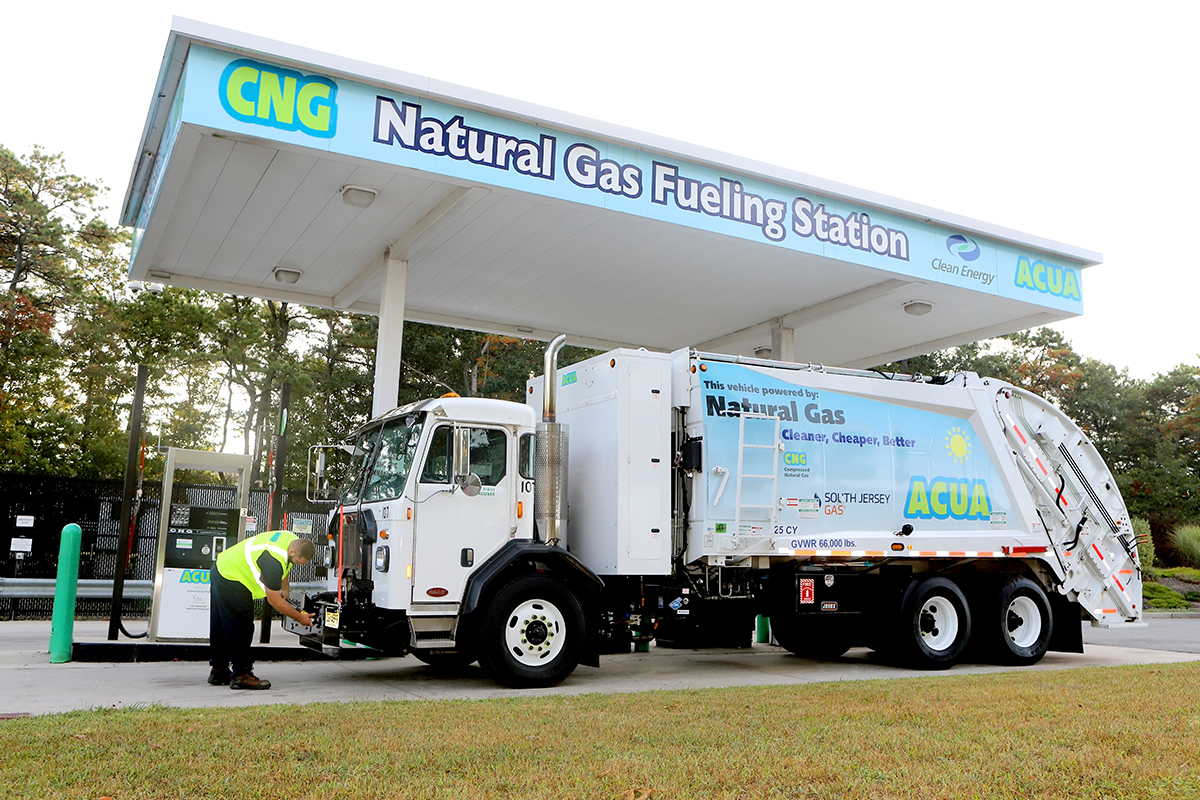
- Reduced Emissions: CNG combustion produces significantly lower levels of greenhouse gases (GHGs), including carbon dioxide (CO2), compared to diesel. It also dramatically cuts emissions of nitrogen oxides (NOx) and particulate matter (PM), which are major contributors to smog and respiratory issues. This cleaner burn helps fleets comply with stringent air quality regulations.
- Quieter Operation: CNG engines are notably quieter than their diesel counterparts, reducing noise pollution, especially beneficial for urban operations and nighttime deliveries.
- Domestic Fuel Source: Natural gas is abundant in many regions, reducing reliance on imported petroleum and enhancing national energy security.

Economic Advantages:
- Lower Fuel Costs: Historically, natural gas has been more stable and often significantly cheaper than diesel fuel on an energy-equivalent basis (per Diesel Gallon Equivalent – DGE). This can lead to substantial operational savings for fleets.
- Incentives and Rebates: Many governments and local authorities offer financial incentives, tax credits, and rebates for purchasing CNG vehicles and building fueling infrastructure, further reducing the initial investment cost.
- Reduced Maintenance: The cleaner burning nature of natural gas results in less engine wear and tear, longer oil change intervals, and reduced soot buildup, potentially leading to lower maintenance costs over the vehicle’s lifespan.
- Predictable Pricing: Natural gas prices tend to be less volatile than diesel prices, allowing for more predictable budgeting and operational costs.
Operational Considerations: Performance, Range & Refueling
While offering compelling benefits, operating CNG trucks involves specific considerations regarding performance, range, and refueling infrastructure.
Performance: Modern CNG engines deliver comparable horsepower and torque to their diesel equivalents, making them suitable for a wide range of demanding applications. While some early models might have shown slight performance differences, current technology ensures that CNG trucks can handle heavy loads and challenging routes effectively.
Range: The range of a CNG truck is primarily determined by the size and number of its fuel tanks. Typically, CNG trucks have a shorter range than diesel trucks due to the lower energy density of compressed natural gas compared to liquid diesel. A heavy-duty CNG truck might offer a range of 400-600 miles, sufficient for many regional and dedicated routes, but potentially requiring more frequent refueling stops for long-haul applications. This makes them ideal for "return-to-base" operations where vehicles start and end their shifts at a central depot with a dedicated fueling station.
Refueling: Refueling a CNG truck is similar to gasoline or diesel, but it requires specialized natural gas fueling stations. These stations can be public, private (for dedicated fleets), or semi-private. The refueling process is safe and straightforward, involving connecting a nozzle to the truck’s fuel receptacle. While generally slower than diesel fueling, advancements in fast-fill technology are improving efficiency. The availability of fueling infrastructure is a critical factor for fleets considering CNG adoption.
Safety, Maintenance & Lifecycle
Safety is paramount in the design and operation of CNG trucks. The fuel tanks are rigorously tested to withstand extreme conditions, including impacts and temperature fluctuations. Natural gas is lighter than air, meaning that in the unlikely event of a leak, it dissipates rapidly into the atmosphere, reducing the risk of accumulation and explosion. Automatic shut-off valves and other safety features are standard.
Maintenance for CNG trucks can differ slightly from diesel. The cleaner burn of natural gas reduces carbon deposits and engine sludge, leading to extended engine life and potentially longer oil drain intervals. However, components specific to the CNG fuel system, such as tanks and regulators, require periodic inspection and certification according to regulatory standards. The overall lifecycle cost often benefits from lower fuel and potentially reduced long-term maintenance expenses.
Market Adoption & Applications
CNG trucks have found a strong foothold in various commercial sectors, particularly those with predictable routes and central fueling capabilities. Key applications include:
- Waste Management: Municipal and private refuse haulers are major adopters due to their fixed routes, daily return-to-base operations, and the desire to reduce emissions in urban areas.
- Public Transit: City buses frequently utilize CNG, benefiting from quiet operation and reduced emissions in densely populated areas.
- Port and Drayage Operations: Short-haul freight movement within and around ports often employs CNG trucks to mitigate localized air pollution.
- Regional Delivery & Logistics: Companies with distribution centers serving specific regions find CNG trucks effective for medium-range deliveries.
- School Buses: Their fixed routes and environmental benefits make CNG an attractive option for student transportation.
The market for CNG trucks continues to grow, driven by environmental regulations, corporate sustainability goals, and the economic benefits of natural gas.
Challenges & The Path Forward
Despite their advantages, CNG trucks face certain challenges that impact broader adoption:
- Initial Vehicle Cost: CNG trucks, especially OEM models, often have a higher upfront purchase price than comparable diesel vehicles. This premium is typically offset over time by fuel savings and incentives.
- Fueling Infrastructure: While growing, the network of public CNG fueling stations is not as extensive as diesel. This can limit their viability for fleets without access to private fueling or consistent routes near public stations.
- Range Anxiety: For long-haul operations, the shorter range compared to diesel can be a concern, requiring strategic planning for refueling stops.
- Public Perception: A lack of understanding about CNG safety and performance can sometimes hinder adoption.
Solutions and the Path Forward:
- Government Support: Continued incentives, grants, and tax credits are crucial to bridge the initial cost gap and encourage infrastructure development.
- Technological Advancements: Ongoing research is improving tank technology (lighter, more compact, higher capacity), engine efficiency, and fast-fill refueling systems.
- Fleet Collaboration: Fleets can partner to develop shared fueling infrastructure, reducing individual investment.
- Education and Awareness: Promoting the safety, reliability, and benefits of CNG technology can help overcome misconceptions.
Practical Advice for Adoption
For fleets considering a transition to CNG, practical advice includes:
- Assess Your Needs: Analyze your fleet’s routes, daily mileage, and operational patterns. CNG is most effective for "return-to-base" operations with predictable routes.
- Evaluate Infrastructure: Determine the availability of public CNG stations along your routes or consider the feasibility and cost of installing a private fueling station.
- Calculate Total Cost of Ownership (TCO): Look beyond the upfront purchase price. Factor in fuel savings, maintenance reductions, potential incentives, and resale value to get a true picture of long-term costs.
- Pilot Programs: Start with a small number of CNG trucks to gain experience with operation, maintenance, and fueling before a full fleet conversion.
- Driver Training: Ensure drivers are properly trained on CNG vehicle operation, refueling procedures, and safety protocols.
- Leverage Incentives: Research and apply for all available federal, state, and local incentives for vehicle purchases and infrastructure development.
Table: Cost Considerations for Compressed Natural Gas Trucks
The cost of CNG trucks can vary significantly based on vehicle class, manufacturer, and whether it’s an OEM build or a conversion. The table below provides a generalized overview of cost considerations.
| Cost Category | Description | Typical Price Range (USD) | Notes |
|---|---|---|---|
| New OEM CNG Truck | Factory-built natural gas truck (e.g., heavy-duty Class 8, medium-duty) | Light-Duty: $40,000 – $70,000 | Generally higher upfront cost than diesel equivalents, but designed from the ground up for optimal CNG performance and integration. Often come with full factory warranties. Price varies greatly by make, model, and specifications. |
| Medium-Duty: $90,000 – $180,000 | |||
| Heavy-Duty: $150,000 – $350,000 | |||
| CNG Conversion Kit | Retrofit system to convert an existing diesel/gasoline truck to CNG | Light-Duty: $8,000 – $15,000 | Can be a more cost-effective entry point for some fleets. Conversion costs depend on vehicle type, engine, and complexity of the system. Ensure the conversion is performed by certified technicians and complies with all regulations (e.g., EPA, CARB). |
| Medium/Heavy-Duty: $30,000 – $60,000 | |||
| CNG Fuel Cost | Cost per Diesel Gallon Equivalent (DGE) | $1.50 – $3.00 per DGE | Prices fluctuate based on region, market conditions, and volume. Historically, CNG has been cheaper and more stable than diesel. (Note: 1 DGE = approx. 5.66 lbs of natural gas or 126.67 cubic feet). |
| Fueling Station | Cost to build a private CNG fueling station | Small (Fast-Fill): $300,000 – $700,000 | Varies significantly by capacity, type (fast-fill vs. time-fill), and site preparation. Often requires substantial upfront investment but offers convenience and potential for bulk fuel discounts. |
| Large/Commercial: $1,000,000 – $3,000,000+ | |||
| Maintenance | Estimated annual maintenance costs | 10-20% less than diesel | Due to cleaner burn, less soot, and longer oil drain intervals, CNG trucks can offer maintenance savings. However, specialized training and parts for CNG components are required. |
| Incentives/Rebates | Government or local programs to offset costs | Varies widely (often $5,000 – $50,000+ per vehicle) | Crucial for reducing the initial investment gap. Research state and federal programs (e.g., EPA’s DERA program, state clean vehicle funds, tax credits). |
Note: All prices are estimates and subject to market fluctuations, location, specific configurations, and negotiation.
Frequently Asked Questions (FAQ) about Compressed Natural Gas Trucks
Q1: Are CNG trucks safe?
A1: Yes, CNG trucks are extremely safe. The fuel tanks are designed and tested to rigorous safety standards, often more robust than gasoline or diesel tanks. Natural gas is lighter than air, so in the unlikely event of a leak, it dissipates quickly, reducing fire risk.
Q2: What is the typical range of a CNG truck?
A2: The range varies significantly based on tank size and vehicle type. Heavy-duty CNG trucks typically offer a range of 400-600 miles, while medium-duty vehicles might have shorter ranges. This makes them ideal for applications with predictable routes and central fueling.
Q3: Is CNG fueling infrastructure widely available?
A3: The infrastructure is growing rapidly, particularly in major transportation corridors and urban areas. While not as ubiquitous as diesel, there are an increasing number of public and private CNG fueling stations, especially where fleet adoption is high (e.g., California, Texas, Northeast).
Q4: Do CNG trucks have less power than diesel trucks?
A4: Modern CNG engines offer comparable horsepower and torque to their diesel counterparts for most commercial applications. Advances in engine technology have largely eliminated any perceived performance deficits.
Q5: What about maintenance for CNG trucks?
A5: CNG trucks often require less frequent oil changes due to cleaner combustion, which reduces engine wear. However, the specialized CNG fuel system components require regular inspection and maintenance by certified technicians. Overall, maintenance costs can be lower than for diesel trucks.
Q6: Are there incentives available for purchasing CNG trucks?
A6: Yes, many federal, state, and local governments offer significant incentives, tax credits, and grants for fleets to purchase CNG vehicles and build fueling infrastructure. These programs aim to encourage the adoption of cleaner transportation technologies.
Q7: Can a diesel truck be converted to run on CNG?
A7: Yes, many diesel trucks can be converted to run on CNG, either as dedicated natural gas vehicles or as bi-fuel (diesel and CNG) systems. It’s crucial to ensure conversions are performed by certified companies using approved kits to maintain safety and compliance.
Concluding Summary
Compressed Natural Gas trucks represent a powerful and practical solution for commercial fleets aiming to reduce their environmental footprint and achieve significant operational savings. With their proven reliability, reduced emissions, quieter operation, and stable fuel costs, CNG vehicles are a smart investment for forward-thinking businesses. While considerations around initial cost and fueling infrastructure remain, ongoing technological advancements and increasing governmental support are paving the way for broader adoption. By embracing CNG, fleets can contribute to a cleaner environment, enhance their bottom line, and drive towards a more sustainable future in transportation.
